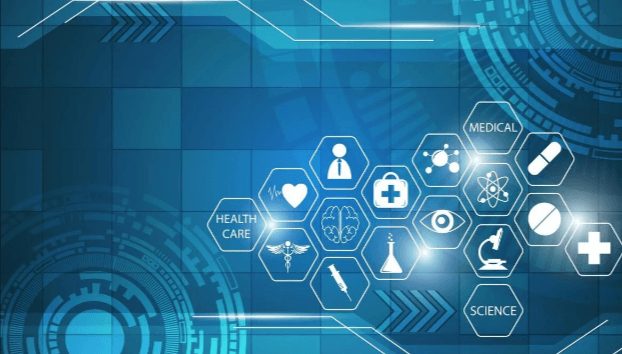What are the latest advancements in healthcare technology in the USA, and how are they improving patient care?

Introduction
Healthcare technology in the USA has seen tremendous advancements in recent years, significantly transforming patient care. These innovations not only enhance the quality of medical services but also make healthcare more accessible and efficient. This article delves into the latest developments in healthcare technology and their impact on patient care.
The Rise of Telemedicine
Telemedicine has become a cornerstone of modern healthcare, particularly in response to the COVID-19 pandemic. It allows patients to consult with healthcare providers remotely, reducing the need for in-person visits. This technology improves access to care for individuals in rural or underserved areas and minimizes the risk of disease transmission.
Artificial Intelligence in Diagnostics
Artificial Intelligence (AI) is revolutionizing diagnostics by providing more accurate and faster results. AI algorithms can analyze medical images, such as X-rays and MRIs, to detect anomalies that might be missed by the human eye. This leads to earlier detection of diseases and more effective treatment plans.
Wearable Health Devices
Wearable health devices, such as fitness trackers and smartwatches, are empowering patients to take control of their health. These devices monitor vital signs, track physical activity, and even detect irregular heartbeats, allowing for early intervention and continuous health management.
Electronic Health Records (EHR)
The adoption of Electronic Health Records (EHR) has streamlined patient information management. EHR systems store comprehensive patient data, making it easily accessible to healthcare providers. This ensures continuity of care, reduces errors, and facilitates better coordination among medical professionals.
Remote Patient Monitoring
Remote patient monitoring (RPM) uses technology to keep track of patients’ health status outside the clinical setting. Devices such as glucose monitors and blood pressure cuffs send real-time data to healthcare providers, enabling timely interventions and reducing hospital readmissions.
Robotics in Surgery
Robotic-assisted surgery enhances precision and control during operations. Surgeons use robotic systems to perform minimally invasive procedures, resulting in smaller incisions, less pain, and quicker recovery times for patients. This technology is particularly beneficial in complex surgeries.
Genomics and Personalized Medicine
Advances in genomics have paved the way for personalized medicine. By analyzing an individual’s genetic makeup, healthcare providers can tailor treatments to the patient’s specific needs. This approach improves treatment efficacy and reduces the likelihood of adverse reactions.
3D Printing in Healthcare
3D printing technology is being used to create custom prosthetics, implants, and even organ models. This innovation allows for more personalized and effective medical solutions. For example, surgeons can practice on 3D-printed models before performing actual surgeries, improving outcomes.
Blockchain for Data Security
Blockchain technology is being utilized to enhance the security of patient data. Blockchain’s decentralized nature makes it difficult for unauthorized users to alter information. This ensures that patient records are accurate, secure, and easily accessible to authorized personnel.
Nanotechnology in Medicine
Nanotechnology offers promising advancements in targeted drug delivery and cancer treatment. Nanoparticles can deliver drugs directly to diseased cells, minimizing side effects and improving the effectiveness of treatments. This precision medicine approach holds great potential for various medical conditions.
Virtual Reality for Pain Management
Virtual reality (VR) is being explored as a tool for pain management and rehabilitation. VR can distract patients from pain and anxiety during medical procedures. It is also used in physical therapy to create engaging and motivating rehabilitation programs.
Advanced Imaging Technologies
New imaging technologies, such as PET-CT and functional MRI, provide detailed insights into the body’s internal structures and functions. These advancements enhance the ability to diagnose and monitor diseases, leading to more accurate and timely treatments.
Mobile Health Apps
Mobile health apps are transforming the way patients manage their health. These apps offer functionalities such as medication reminders, symptom tracking, and telehealth services. They empower patients to stay engaged in their health and make informed decisions.
Augmented Reality in Medical Training
Augmented Reality (AR) is revolutionizing medical training by providing immersive learning experiences. AR can overlay digital information onto the physical world, helping medical students and professionals visualize complex anatomical structures and practice procedures in a simulated environment.
Big Data Analytics
Big data analytics enables the processing of vast amounts of healthcare data to identify trends, predict outcomes, and improve patient care. By analyzing data from various sources, healthcare providers can make more informed decisions, leading to better health outcomes and cost savings.
Internet of Medical Things (IoMT)
The Internet of Medical Things (IoMT) refers to the interconnected network of medical devices and applications that collect and share data. IoMT improves patient care by enabling continuous monitoring, early detection of issues, and personalized treatment plans.
Precision Oncology
Precision oncology leverages genetic information to tailor cancer treatments to individual patients. By understanding the genetic mutations driving a patient’s cancer, healthcare providers can select targeted therapies that are more likely to be effective, improving survival rates and reducing side effects.
Bioprinting for Organ Regeneration
Bioprinting is an emerging field that uses 3D printing technology to create living tissues and organs. This innovation holds the potential to address the shortage of organ donors and provide custom-made organs for transplantation, greatly improving patient outcomes.
Health Information Exchange (HIE)
Health Information Exchange (HIE) facilitates the secure sharing of patient information across different healthcare organizations. HIE improves the continuity of care, reduces duplicate testing, and ensures that healthcare providers have access to complete patient histories.
Smart Hospitals
Smart hospitals leverage advanced technologies, such as IoT devices, AI, and automation, to enhance patient care and operational efficiency. These hospitals use real-time data to optimize workflows, improve patient safety, and provide a more personalized care experience.
Machine Learning for Predictive Analytics
Machine learning algorithms analyze historical and real-time data to predict patient outcomes and identify potential risks. This predictive analytics approach enables proactive interventions, reducing complications and improving overall patient care.
Digital Therapeutics
Digital therapeutics are evidence-based interventions delivered through software programs to prevent, manage, or treat medical conditions. These digital solutions can complement traditional treatments, offering patients additional support and improving adherence to treatment plans.
Cybersecurity in Healthcare
With the increasing reliance on digital technologies, cybersecurity has become a critical concern in healthcare. Advanced cybersecurity measures are essential to protect sensitive patient information from cyber threats and ensure the integrity of healthcare systems.
Enhanced Patient Portals
Patient portals provide a convenient way for patients to access their medical records, communicate with healthcare providers, and manage appointments. Enhanced patient portals offer additional features, such as telehealth integration and personalized health advice, improving patient engagement and satisfaction.

Innovative Drug Delivery Systems
New drug delivery systems, such as transdermal patches and inhalable nanoparticles, improve the administration and efficacy of medications. These systems can enhance patient compliance and provide more consistent therapeutic effects.
Remote Ultrasound Technology
Remote ultrasound technology allows healthcare providers to perform ultrasounds on patients located far from medical facilities. This technology uses robotic arms and telecommunication systems to transmit real-time images, improving access to diagnostic services in remote areas.
Smart Pills
Smart pills are ingestible sensors that monitor medication adherence and provide real-time data on a patient’s health status. These devices help ensure that patients take their medications as prescribed, improving treatment outcomes and reducing healthcare costs.
Conclusion
The latest advancements in healthcare technology in the USA are transforming patient care by making it more efficient, personalized, and accessible. From telemedicine and AI diagnostics to wearable devices and precision medicine, these innovations are improving health outcomes and enhancing the patient experience. As technology continues to evolve, the future of healthcare looks promising, with even more groundbreaking developments on the horizon.
FAQs
What is telemedicine, and how does it improve patient care? Telemedicine involves remote consultations between patients and healthcare providers, improving access to care, especially in rural areas, and reducing the need for in-person visits.
How is AI used in healthcare diagnostics? AI analyzes medical images and data to detect anomalies, leading to earlier disease detection and more accurate diagnoses, enhancing treatment effectiveness.
What are wearable health devices? Wearable health devices, like fitness trackers and smartwatches, monitor vital signs and physical activity, helping patients manage their health and detect potential issues early.
How do Electronic Health Records (EHR) benefit patients? EHR systems store comprehensive patient data, ensuring continuity of care, reducing errors, and improving coordination among healthcare providers.
What is personalized medicine? Personalized medicine tailors treatments to an individual’s genetic makeup, improving efficacy and reducing the risk of adverse reactions.
How does blockchain technology enhance healthcare data security? Blockchain provides a secure, decentralized system for storing patient data, preventing unauthorized access and ensuring the accuracy of medical records.





